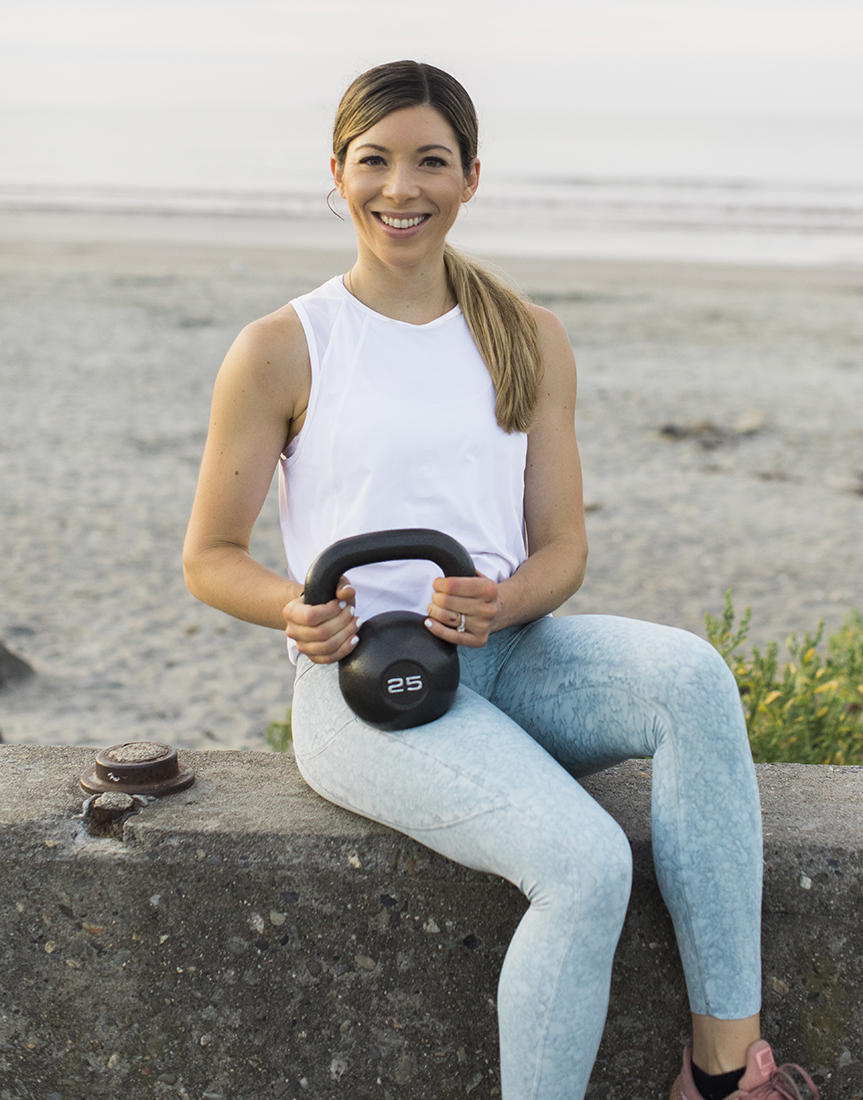See disclaimer in my sidebar: I am not a doctor, nutritionist, or PT — but I have worked with lots of doctors, nutritionists, PTs, and strength training professionals over my career. These are just my experiences and informed opinions from 12+ years in the sport.
If you’re looking to lose weight, you’ll find no shortage of resources. Every blog, magazine, and book out there will tell you about “the next big thing” and “what worked for me.” Diet culture is pervasive and contagious, and there are many, many companies out there that profit on the contingency of women hating their bodies.
In my bio I talk about how running changed my life 12 years ago. When I started viewing myself as an athlete, I started viewing my workouts as “training” vs. ways to get “skinny” or “toned”. I started looking at my body for what it can do — like running longer than I ever have before, setting new PRs, nailing a tough lift — vs. just what it looks like. This in turn totally changed the way I viewed myself, my body, and what I eat.
In the past six years, I’ve maybe weighed myself a handful of times. Why? Because I feel there are more important questions to answer than “What do I weigh?”.
What if, the next time you’re tempted to fixate on your weight, you asked yourself:
1. Do I feel strong and competitive in workouts and races? Do you feel like you’re fully present in workouts and races, or do you feel like you’re just slogging along and going through the motions? Do you feel like you attack hills, or like every hill defeats you? Do you feel like you have a strong kick at the end of races? Before focusing on fixing your body, try focusing on fixing your training (and your mental game). Ask yourself: Am I doing all the little things I need to do to succeed? Am I fully present in my training when I’m training, or am I constantly distracted? Am I neglecting certain types of workouts or doing too little/too much mileage? Sometimes you need to refocus, sometimes you need to be working harder, and sometimes you just need to change it up.
2. Does my training bring me joy? Do you view training as a challenge, as a way to hone in on your competitive spirit, as a way to push and understand yourself better? Or do you view training as a chore? If you’re not loving what you’re doing, it’s going to show – in everything from your training logs to your performance results to your personal relationships, sleeping habits, and the food choices you make.
3. Does what I’m eating make me feel good and energized? If you’re eating lots of sugar, processed foods, and too few vegetables or quality protein, you’re going to feel like crap all the time, and your body isn’t going to be functioning optimally. Plain and simple. Conversely, if you’re eating too little or trying to go vegan/paleo/fat-free just because everyone on Instagram is doing it, your body is going to respond accordingly and you’re going to be tired all the time, your hormone function is going to become suppressed, your recovery is going to slow, and your skin, hair, and nails will weaken. Your diet should be working for you, not the other way around. It takes a lot of experimentation to find what works best for you, but put blinders on, stop looking at what everyone else is doing, and focus on what foods and in what amounts make YOU feel happy, strong, and energized. When you eat what makes you feel good, eat intuitively, and train hard, I’m a firm believer that your body will find the weight it’s supposed to be at.
Hint: Make sure you’ve got the fundamentals down. Eat often enough to avoid blood sugar crashes or big dips in energy. Make sure you get vegetables (especially leafy green ones) in with at least two meals a day. Make sure you’re getting some kind of protein in consistently, so your body can keep repairing and recovering. Make sure you’re eating enough healthy fats for hormone function (especially important for females), and make sure you’re drinking lots of water consistently throughout the day. Eery system in your body depends on hydration, and it is especially important for digestion – which plays a big part in how you feel day-to-day. Avoid regularly eating foods that make you feel sluggish, give you brain fog, give you a stomach ache and/or compromise your digestion, and avoid foods that make you bloated.
4. Are you enjoying the foods you’re eating? If you’re eating plain steamed vegetables and grilled chicken every day because that’s what’s “healthy”, you’re probably not enjoying what you’re eating. (But if you are, that’s ok too.) There are so many different amazingly healthy foods out there, and so many different ways to cook them, combine them, and make them more interesting. Healthy food doesn’t have to be boring (see my Instagram for recipe ideas). And any healthy diet should have plenty of variety — not just to make sure you’re getting all the macro- and micronutrients you need, but also for your psychological health and sanity.
Also – barring any allergies, there is a place for all foods in a healthy, balanced diet. An A- or B+ diet is always better than an A+ diet, because an A-/B+ diet is one you can sustain for the rest of your life, and an A+ diet is not. (Lauren Fleshman has great insight on this.) And furthermore, you simply don’t need an A+ diet to reach your goals. You can absolutely achieve and maintain your happiest, healthiest, fittest weight with a B+ diet… it just comes down to consistency.
Feature photo courtesy of Ocean State Multisport.



